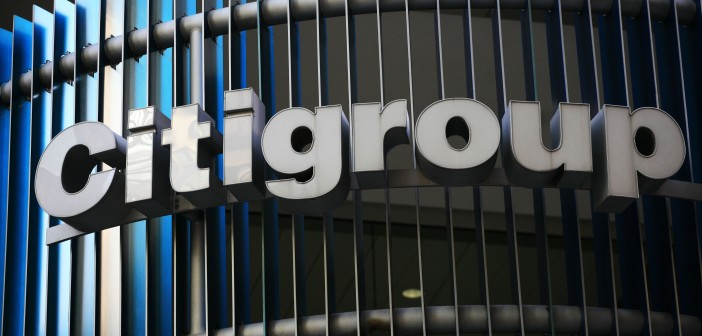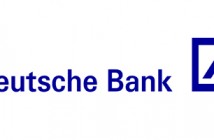Yesterday the penalties of the settlement between Citigroup Inc (NYSE:C) and the United States Securities and Exchange Commission were announced to investors and the general public. The settlement was approved earlier this month on August 5th, and was in regards to claims involving the bank’s previous sale of select debt products.
This set back for the bank is partially a result of the timing of the settlement. Other banks who faced similar settlements were able to avoid these restrictions because their settlements occurred before a modification in regulations last year.
For the last two weeks, Citigroup has been writing to hedge fund businesses to inform them that the bank is no longer able to guide investors towards their funds. In the letter, the bank explained that it is cooperating with the SEC to solve the issue. Under government regulations, the SEC must first issue a waiver before Citigroup can resume hedge fund sales to its clients.
Currently, Citigroup has been providing a total of 40 hedge funds to the clients of its private bank. One of these hedge funds is one that is managed by Och-Ziff Capital Management. Citigroup’s private bank controls $310 billion, and its clients are required to each have a net worth of $25 million or greater.
The bank is still allowed to sell private investments to large institutions.
The restriction is a result of more investors focusing on hedge funds and other alternative investments. These alternative investments are viewed by experts in the industry as a method to safeguard against potential losses when the stock market swings to its high points. By selling hedge funds and other alternative investments to wealthy clients and institutions, banks and other financial firms are increasingly seeing the benefits that these sales could yield.
According to Ken Heinz, the president of HFR, selling funds to investors is a growing space. Money from wealthy families and individuals make up about 26 percent of the $2.8 trillion invested in hedge funds. This figure has grown 20 percent from last year.
These restrictions imposed on Citigroup result from a settlement between Citigroup and the Securities and Exchange Commission involving the bank’s sale of specific collateralized debt obligations to its clients in 2006 and 2007. In 2011, the settlement was reached to be $285 million, but Jed Rakoff, the presiding judge over the case of the U.S. District Court in Manhattan, initially rejected the deal on the basis that the terms were too small for a business as large as Citigroup. On August 5th of this year, right after the reversal of that initial ruling by the Second U.S. Circuit Court of Appeals, the settlement was approved by Judge Rakoff.
The “bad actor” law adopted by the SEC a little over a year ago, limits the party with a applicable criminal conviction, regulatory order, court order, or another disqualifying even, from engaging in private offering. This law was adopted as a part of the 2010 Dodd-Frank regulatory overhaul of the SEC.
Since the government agency passed the new rule before Citigroup’s settlement reached its final approval, that means that the bank is now subject to additional limits. Other banks that had reached their settlements in the past few years mostly had their deals approved before the bad actor law went into effect. Thus, those banks did not have to face the limitations that Citigroup is dealing with right now.
The bank has file for a waiver, but it will most likely require more time to review after the changes made to the regulations last year. The waiver will be granted to Citigroup if the SEC sees it as being in the best interest for the public. Citigroup will be allowed to conduct business as usual if it receives the waiver.
In most requests for waivers, companies often claim that the activities that involve the waiver aren’t even directly related to the activities noted in the settlements, and thus shouldn’t be limited.
Some experts within the SEC, such as Democratic commissioner Kara Stein, have protested issuing waivers for repeat offenders of the law.
Stein said that the bad actor policies are certainly able to reprimand large institutions for their mistakes. However, by repeatedly issuing waivers to the companies, it negates the consequences of the firms’ errors.
Citigroup has reached settlements with the government before, such as a $7 billion deal last month to settle the United States government’s claims that it was aware of the sale of defect mortgages prior to the economic crisis.
Followng the original settlement three years ago, Citigroup has been permitted to sell these investments to clients. However, the bank was forced to stop when the settlement was approved earlier in August. The bank is doing due diligence on these funds and has been charging fees for putting clients in the funds.
In the past few years, Citigroup has terminated many aggressive trading operations, and closed or modified businesses that managed private equity funds and hedge funds. However, it has continued the sale of funds that are operated by other entities to clients of Citigroup.
In 2013, Citibank finished the spin off of its hedge fund strategies unit Citi Capital Advisors into an entity owned by management, called Napier Park Global Capital. According to Citigroup, this move was done to make sure the company would comply with the Dodd-Frank regulations.
A component of the law is the Volcker rule, which prevents banks from owning more than 3% of a private equity firm or a hedge fund. Citigroup set up another hedge fund that it had managed before, and has since transferred the ownership of Citi Venture Capital International to a third party. Citi Venture Capital International is a private equity firm for emerging markets.




Pingback: cialis 5mg price
Pingback: gnc ed pills
Pingback: cheap erectile dysfunction pills
Pingback: buy erection pills
Pingback: generic cialis online
Pingback: walmart pharmacy
Pingback: best online pharmacy
Pingback: cialis visa
Pingback: Get cialis
Pingback: vardenafil cost
Pingback: vardenafil online
Pingback: wind creek casino online games
Pingback: vegas casino online
Pingback: cheapest generic viagra
Pingback: casino online slots
Pingback: play for real online casino games
Pingback: online payday loans
Pingback: short term loans
Pingback: cash loan
Pingback: viagra 100mg
Pingback: real money casino app
Pingback: cialis buy
Pingback: nida
Pingback: slot machines
Pingback: Casinos 2020
Pingback: cialis 5 mg
Pingback: cialis buy
Pingback: cialis 5 mg
Pingback: best place to play blackjack online for real money
Pingback: cialis buy
Pingback: online slots
Pingback: casinos online
Pingback: casino games
Pingback: online casinos
Pingback: buy viagra online
Pingback: cheap viagra online canadian pharmacy
Pingback: sildenafil 20
Pingback: buy cialis online cheap
Pingback: coupon for viagra 100mg
Pingback: buszcentrum.com
Pingback: buy cialis online
Pingback: grassfed.us
Pingback: keflex.webbfenix.com
Pingback: ceclor no prescription
Pingback: how to purchase ceftin 500mg
Pingback: celebrex 200mg coupon
Pingback: celexa price
Pingback: cipro over the counter
Pingback: claritin 10mg no prescription
Pingback: online casino games
Pingback: best slots to play online
Pingback: slots online
Pingback: ocean casino online nj
Pingback: gambling casino
Pingback: best slots to play online
Pingback: casino gambling
Pingback: doubleu casino online casino
Pingback: online slots for real money
Pingback: rivers casino
Pingback: triple a car insurance
Pingback: car insurance quotes companies ireland
Pingback: car insurance quotes
Pingback: cheap car insurance quotes
Pingback: extremely cheap car insurance quotes
Pingback: plymouth rock car insurance quotes
Pingback: rental car insurance quotes
Pingback: auto car insurance quotes
Pingback: best car insurance quotes for young drivers
Pingback: owners car insurance
Pingback: best personal loans
Pingback: best payday loans
Pingback: american payday loans
Pingback: installment loans memphis
Pingback: safe online quick loans
Pingback: bad credit loans no credit check
Pingback: payday loans tulsa
Pingback: best personal loans
Pingback: is cbd oil legal in kentucky
Pingback: cbd vape oil for sale
Pingback: does cbd oil get you high
Pingback: medical cannabis oil for sale high cbd rso
Pingback: reviews of cbd oil for anxiety
Pingback: best cbd oil for depression and anxiety
Pingback: ananda cbd oil
Pingback: cbd oil for anxiety reviews
Pingback: define assignations
Pingback: my homework now
Pingback: write my paper
Pingback: write essay for me
Pingback: buy an essays
Pingback: uk essay writing service
Pingback: define assignments
Pingback: cheap essay writing service us
Pingback: essay writing service
Pingback: nursing essay writing services
Pingback: cleocin 300mg tablets
Pingback: clomid usa
Pingback: clonidine 0,1mg without a doctor prescription
Pingback: clozaril cost
Pingback: colchicine over the counter
Pingback: symbicort inhaler 160/4,5mcg for sale
Pingback: combivent 50/20 mcg online pharmacy
Pingback: coreg 12,5mg coupon
Pingback: compazine 5 mg prices
Pingback: coumadin canada
Pingback: crestor 10 mg price
Pingback: cymbalta coupon
Pingback: dapsone caps australia
Pingback: ddavp uk
Pingback: depakote 250 mg nz
Pingback: diamox without a doctor prescription
Pingback: differin 15g without prescription
Pingback: doxycycline 100 mg canada
Pingback: dramamine otc
Pingback: how to purchase elavil 10 mg
Pingback: erythromycin 500 mg australia
Pingback: etodolac nz
Pingback: buy flomax
Pingback: flonase nasal spray 50mcg uk
Pingback: garcinia cambogia caps without prescription
Pingback: geodon 20 mg australia
Pingback: where can i buy hyzaar
Pingback: how to purchase imdur
Pingback: imitrex usa
Pingback: try this out
Pingback: how to buy imuran
Pingback: indocin 25mg usa
Pingback: lamisil price
Pingback: levaquin 250mg medication
Pingback: lopid coupon
Pingback: lopressor australia
Pingback: luvox 50 mg without a doctor prescription
Pingback: macrobid prices
Pingback: where can i buy mestinon
Pingback: how to buy micardis
Pingback: mobic 15 mg prices
Pingback: motrin without prescription
Pingback: nortriptyline tablet
Pingback: periactin 4 mg uk
Pingback: phenergan cost
Pingback: plaquenil 200mg pills
Pingback: prednisolone 5mg medication
Pingback: prevacid 30 mg medication
Pingback: prilosec 20 mg online
Pingback: how to buy proair inhaler 100mcg
Pingback: procardia without prescription
Pingback: protonix canada
Pingback: provigil 200mg pharmacy
Pingback: pyridium 200mg for sale
Pingback: reglan 10mg cost
Pingback: remeron 30 mg cost
Pingback: retin-a cream australia
Pingback: revatio 20 mg cost
Pingback: risperdal united states
Pingback: how to purchase robaxin
Pingback: where can i buy rogaine
Pingback: seroquel uk
Pingback: singulair tablets
Pingback: skelaxin 400 mg cheap
Pingback: where to buy spiriva
Pingback: tenormin nz
Pingback: how to purchase thorazine
Pingback: toprol 50mg united kingdom
Pingback: tricor usa
Pingback: cheap valtrex
Pingback: vantin 100mg over the counter
Pingback: verapamil 40 mg without a doctor prescription
Pingback: voltaren without a doctor prescription
Pingback: wellbutrin tablets
Pingback: zestril 2,5 mg medication
Pingback: zithromax price
Pingback: Click Here
Pingback: zocor for sale
Pingback: zovirax without a prescription
Pingback: zyloprim no prescription
Pingback: zyvox pills
Pingback: buy sildenafil
Pingback: furosemide purchase
Pingback: buy escitalopram 10 mg
Pingback: aripiprazole pharmacy
Pingback: where can i buy pioglitazone 30mg
Pingback: spironolactone 25 mg usa
Pingback: fexofenadine nz
Pingback: order glimepiride 4mg
Pingback: meclizine 25 mg pills
Pingback: leflunomide 20mg online pharmacy
Pingback: atomoxetine 25mg cost
Pingback: donepezil 5mg price
Pingback: anastrozole pharmacy
Pingback: where can i buy irbesartan
Pingback: dutasteride 0,5mg price
Pingback: olmesartan without a doctor prescription
Pingback: cheap buspirone
Pingback: clonidine 0.1mg without a doctor prescription
Pingback: cefuroxime 500 mg australia
Pingback: where can i buy celecoxib 100 mg
Pingback: buy citalopram 20mg
Pingback: cephalexin 500 mg without a prescription
Pingback: clindamycin online
Pingback: clozapine united kingdom
Pingback: prochlorperazine uk
Pingback: carvedilol 6.25mg pharmacy
Pingback: where can i buy warfarin
Pingback: where can i buy rosuvastatin
Pingback: divalproex 125mg cost
Pingback: where can i buy trazodone 25 mg
Pingback: tolterodine 2mg nz
Pingback: acetazolamide canada
Pingback: fluconazole 100 mg no prescription
Pingback: order phenytoin
Pingback: oxybutynin tablets
Pingback: doxycycline cheap
Pingback: where can i buy bisacodyl
Pingback: venlafaxine 75 mg tablet
Pingback: amitriptyline 25mg pharmacy
Pingback: permethrin australia
Pingback: erythromycin nz
Pingback: estradiol price
Pingback: fluticasone 50mcg price
Pingback: alendronate 70 mg united states
Pingback: nitrofurantoin online pharmacy
Pingback: glipizide 5 mg pharmacy
Pingback: isosorbide pharmacy
Pingback: sumatriptan 25 mg nz
Pingback: how to purchase loperamide 2 mg
Pingback: propranolol generic
Pingback: indomethacin australia
Pingback: terbinafine online pharmacy
Pingback: levothyroxine mcg pharmacy
Pingback: gemfibrozil over the counter
Pingback: metoprolol over the counter
Pingback: clotrimazole price
Pingback: metoclopramide 10 mg no prescription
Pingback: porno}
Pingback: What to text a man to make him chase you levitra kaufen?
Pingback: Medications and Emotional Well-being - Cultivating Happiness, Finding Peace dapoxetine usa?
Pingback: Understanding Food Allergies and Intolerances Zithromax z pak dosage?
Pingback: Medications - Key Players in Combating Global Health Issues sildenafil & dapoxetine tablet?
Pingback: Medications and Cancer Treatment - Fighting the Battle, Restoring Hope Cenforce generic?
Pingback: Medications and Dental Anxiety - Soothing Fears, Encouraging Oral Health furosemide 40 mg tablet?
Pingback: Navigating the World of Over-the-Counter Medications albuterol sulfate?
Pingback: order Cenforce 50mg sale?
Pingback: where can i buy priligy online safely?
Pingback: Medications and Eye Health - Clear Vision for a Bright Future purchase lasix pills?
Pingback: Medications and Concussion Management - Supporting Brain Healing ventolin hfa inhaler?
Pingback: The Endocannabinoid System - Cannabis and Health furosemide 100mg tablet?
Pingback: Medical Ethics in the Age of CRISPR Gene Editing superman pills viagra?
Pingback: Can antibiotics prevent infection in prisoners ivermectin for pigs?
Pingback: Can antibiotics cause sadness plaquenil for lupus?
Pingback: How many steps burns 500 calories buy Cenforce 50mg without prescription
Pingback: vidalista centurion laboratories
Pingback: viagra pill price
Pingback: dapoxetine tablet
Pingback: viagra vs cialis
Pingback: Can two sperm make a baby??
Pingback: dapoxetine 60 mg sildenafil 100mg - How long does it take to buy sperm?
Pingback: hcq
Pingback: ventolin inhaler
Pingback: vidalista 60
Pingback: pill teva vs viagra
Pingback: kamagra jell
Pingback: amoxil pills
Pingback: oral Cenforce
Pingback: tadalista 20 mg
Pingback: Azithromycin 500 mg z pak
Pingback: atorvastatin price cvs
Pingback: the sleep store kamagra
Pingback: tadalista
Pingback: androgel gel
Pingback: vilitra 40
Pingback: tadalista 60mg
Pingback: kamagra amazon
Pingback: Why should you not drink vodka buy hydroxychloroquine?
Pingback: Anonymous
Pingback: vidalista en alcohol
Pingback: albuterol sulfate side effects
Pingback: 500 mg of metronidazole
Pingback: advair price
Pingback: vidalista 20 reviews
Pingback: cenforce 100 fake
Pingback: Cenforce 100
Pingback: kamagra uk
Pingback: stromectol 12mg online order
Pingback: fildena
Pingback: cenforce 100 ideal
Pingback: sildenafil 50mg usa
Pingback: vidalista professional 20 mg
Pingback: ritonavir and darunavir
Pingback: clomid for men
Pingback: buy clincitop
Pingback: cenforce D tablet
Pingback: merck stromectol
Pingback: scavista medicine
Pingback: generic stromectol
Pingback: vermact 12
Pingback: vermact 12 mg tablet uses
Pingback: what is vardenafil used for
Pingback: tadalista que es
Pingback: hcq
Pingback: prednisone 10 mg side effects
Pingback: tiruvectin
Pingback: vardenafil generic
Pingback: poxet dapoxetine
Pingback: nolvadex 20 mg
Pingback: buy qvar inhaler online
Pingback: is vidalista real
Pingback: Cenforce over the counter equivalent
Pingback: clomid 50mg men
Pingback: vidalista 20
Pingback: wat doet vidalista
Pingback: iversun 6
Pingback: rybelsus 14 mg
Pingback: qvar coupon
Pingback: motilium 20mg
Pingback: online levitra
Pingback: buy vidalista
Pingback: stromectol tablets for humans
Pingback: scavista 12
Pingback: iverjohn 6
Pingback: iverheal12
Pingback: vidalista
Pingback: buy dapoxetine usa
Pingback: amoxicillin cost without insurance
Pingback: vidalista 40 opiniД™
Pingback: asthalin price
Pingback: buy cheapest priligy
Pingback: dapoxetine
Pingback: fildena 100 india
Pingback: does vidalista 20 work
Pingback: hydroxychloroquine sulfate 200 mg tablet
Pingback: cost of Generic clomid no prescription
Pingback: fertomid 25
Pingback: vidalista 60mg uk
Pingback: cialis generic vidalista
Pingback: clomiphene citrate 50 mg
Pingback: dapoxetine tablet 30 mg price
Pingback: Cenforce 50
Pingback: fildena india
Pingback: super avana online
Pingback: fildena 100 paypal
Pingback: ventolin inhaler vs proventil
Pingback: buy lipitor online uk
Pingback: kamagra 50mg
Pingback: tadarise pro 40
Pingback: vidalista mg60
Pingback: where can i buy flagyl over the counter
Pingback: assurans tab
Pingback: bausch and lomb coupon for lotemax
Pingback: buy albuterol
Pingback: fildena vs sildenafil
Pingback: levitra discount coupons
Pingback: kamagra buy online
Pingback: purchase cialis
Pingback: viahelpmen.wordpress.com
Pingback: kamajelly.wordpress.com
Pingback: profcial.wordpress.com
Pingback: forceforu.wordpress.com
Pingback: Can i get Cheap clomid
Pingback: vermikind
Pingback: cialsuper.wordpress.com
Pingback: kamagra 100 mg
Pingback: extra super p-force 200 mg
Pingback: cathopic.com/@lipitor
Pingback: buy tadalista 20
Pingback: vigrakrs.com
Pingback: Sexual frequency tends to normalize within several weeks of initiating therapy with generic viagra.
Pingback: suhagra capsule uses
Pingback: trimox 500 mg price
Pingback: fildena.homes
Pingback: cenforce360.com
Pingback: cheapest Levitra
Pingback: buy Levitra 20mg
Pingback: kamagra
Pingback: clomiphene citrate 50mg for men
Pingback: Fildena 150mg extra power
Pingback: malegra tablets
Pingback: cenforce
Pingback: kamagra sale
Pingback: is avanafil better than sildenafil
Pingback: xenical without dr prescription
Pingback: do viagra pills go bad
Pingback: avanafil genérico preço
Pingback: stromectolgl.com
Pingback: kmgra.com
Pingback: dosage of amoxicillin for tooth infection
Pingback: order Cenforce 50mg online cheap
Pingback: Cenforce 100mg over the counter
Pingback: Sildenafil uk patent
Pingback: yasmin cvs
Pingback: Fildena order
Pingback: sildenafil price
Pingback: Cenforce 100 side effects
Pingback: fempro drug
Pingback: buy cialis online
Pingback: Cenforce 100mg tablet
Pingback: latanoprost generic name
Pingback: stromectol walgreens
Pingback: ivecop 12 tablet uses
Pingback: health20253.wordpress.com
Pingback: synthroidtro.com
Pingback: tadalafilendy.com
Pingback: medsmir.com
Pingback: stromectolist.com
Pingback: postmailmed.com
Pingback: lipitorbrl.com
Pingback: pharmvolk.com
Pingback: vardenafilotc.com
Pingback: stromectoluk.com
Pingback: cenforcemg.com
Pingback: stromectolc.com
Pingback: flagyltb.com
Pingback: xydroplaq.com
Pingback: levitraoffer.net
Pingback: sulfatealbuterol.com
Pingback: stromectoloff.com
Pingback: clairepatella.com/forums/users/ventolin-inhaler/
Pingback: bento.me/flagyl
Pingback: btob.scrt.co.uk/forums/users/vidalista-20
Pingback: buy amoxicillin online
Pingback: cenforce 150mg
Pingback: Fildena 120
Pingback: can women take Vidalista
Pingback: cenforce 200
Pingback: erectile dysfunction pills black 80 Vidalista
Pingback: dapoxetine buy us
Pingback: priligy
Pingback: kamagra
Pingback: ivecare
Pingback: doe cipla in india manufacture kamagra
Pingback: +38 0950663759 – Vladimir (Sergey) Romanenko, Odessa – Gandon v perepiske uveryal: vsYo idealno, vsYo provereno. Poluchil — ne vklyuchaetsya! Eto chto za otnoshenie k lyudyam? OLX, uberite takie ob'yavleniya, pozor!
Pingback: Zithromax over the counter at walgreens
Pingback: avanafilo y alcohol
Pingback: buy kamagra oral jelly from india
Pingback: advair diskus price
Pingback: vermact medicine
Pingback: priligy 60 mg
Pingback: buy kamagra melbourne